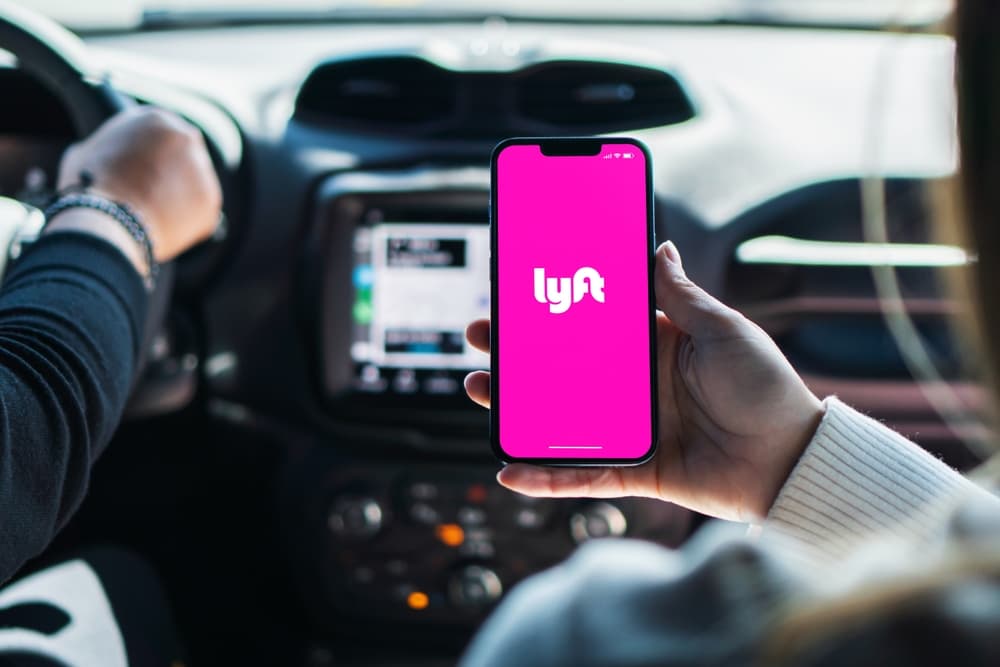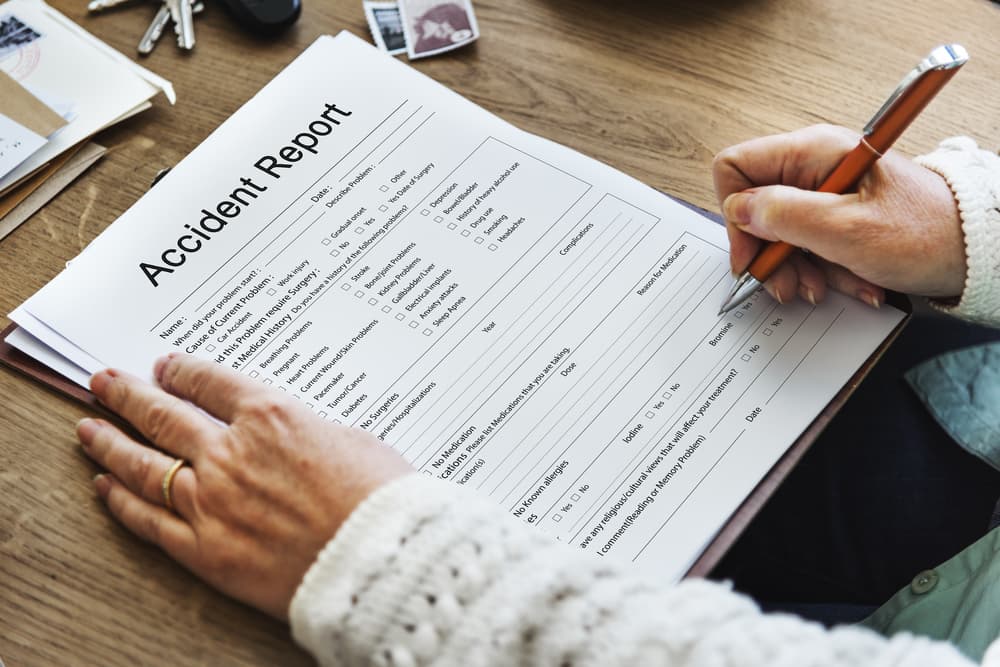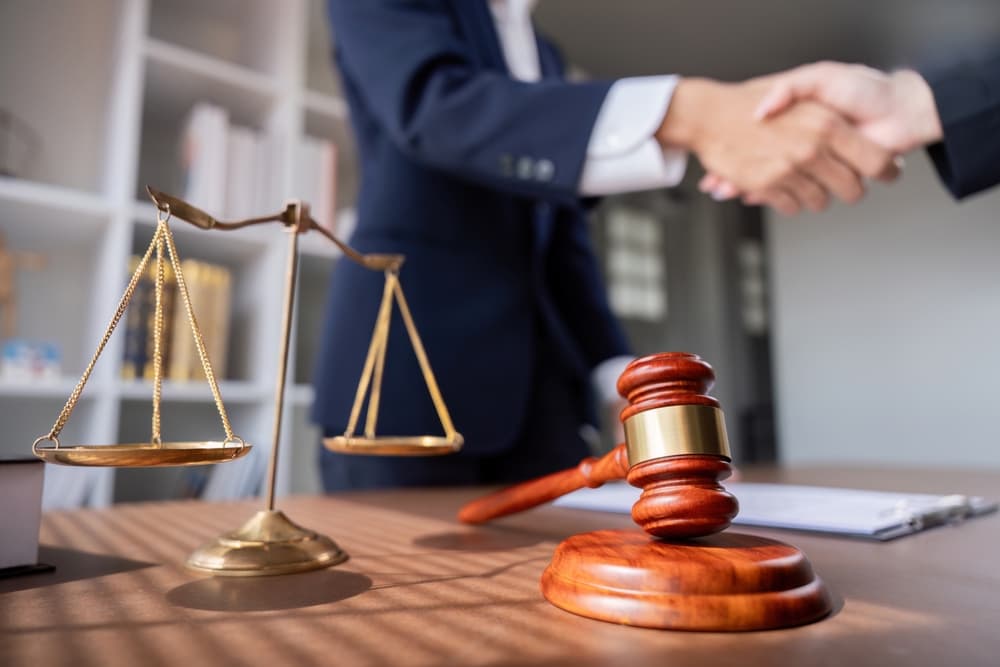Your phone buzzes with a ride request, and you start driving. Suddenly, another car slams into yours. If you’re hit by another driver while driving for Uber or Lyft, you face a unique and complicated situation.
The path forward involves multiple insurance policies and companies that may point fingers at each other. You have options for recovering money for your injuries and damages, and a lyft driver accident lawyer can help you navigate the legal road ahead.
Understanding the Insurance Maze After a Rideshare Accident

The moments after a Lyft driver accident are confusing. You have your personal car insurance, and the rideshare company also provides insurance coverage. Figuring out which policy applies depends entirely on your status in the app when the wreck occurred.
An accident that happens in The Loop during rush hour has different insurance implications depending on whether you were on your way to a passenger or waiting for a request. The source of compensation for a rideshare accident changes based on your app status.
When Your Personal Car Insurance Applies
Your own auto insurance policy covers you when you’re not using the rideshare app. If you use your car for personal errands, your policy is in effect.
For example, if you dropped a passenger in Wrigleyville and then logged off the app to go home, your personal insurance applies to any accident that happens next.
Most personal auto policies, however, contain a business-use exclusion. This means they deny claims for accidents that happen while you’re actively working for a rideshare company.
Uber and Lyft’s Insurance Periods Explained
Rideshare companies provide different levels of coverage based on your activity. This system creates three distinct periods. The insurance available after a rideshare accident where the other driver is at fault changes with each one.
App Is On, Waiting for a Request
You're logged into the app and can accept rides. During this phase, rideshare insurance provides liability coverage if your personal policy denies a claim. The coverage limits are lower than when you're on a trip.
Accepted a Ride/Carrying a Passenger
If you've accepted a ride and are driving to pick someone up, you’re now covered by the company's full insurance policy. This includes higher liability limits and other protections.
The company’s $1 million policy for liability, uninsured motorist, and underinsured motorist coverage applies when you have a passenger.
Dealing With an Uninsured or Underinsured Motorist
If you’re hit while driving and the at-fault driver has no insurance, Uber and Lyft each carry Uninsured/Underinsured Motorist (UM/UIM) coverage. This coverage applies when the app is on and steps in to pay for your injuries and damages when the other driver can't.
Available Compensation After a Collision With Another Driver in Chicago
If the accident wasn’t your fault, you may have a right to seek compensation. You may recover payment for the many ways the crash impacted your life.
Common types of damages include:
- Medical Bills: You may receive payment for all reasonable and necessary medical care for your injuries. This covers everything from the ambulance ride and emergency room visit to hospital stays, surgeries, physical therapy, and medication. Future care is included.
- Lost Income: This compensation covers the wages you lost if you couldn’t work while recovering from your injuries. It also includes future lost earning capacity if the crash permanently affects your ability to drive for Uber or Lyft.
- Property Damage: The at-fault driver's insurance is responsible for paying to repair or replace your vehicle and any other personal property that was broken or damaged in the crash.
- Pain and Suffering: This money compensates you for the physical pain and discomfort you experienced because of the accident and your injuries.
- Emotional Distress: You may receive compensation for the anxiety, fear, sleep loss, and other psychological impacts of the traumatic event.
- Loss of Enjoyment of Life: This compensation addresses how the injuries from the crash affected your ability to enjoy your daily activities. It acknowledges the loss of your hobbies, independence, and general quality of life.
Reporting the Accident to Uber or Lyft

After an accident, you must let the rideshare company know what happened. Many drivers feel nervous about this step and worry that reporting a Lyft driver crash might lead to deactivation.
While that's a valid concern, failing to report the crash creates bigger problems for your claim. Prompt reporting is a requirement of your agreement with the company. It's also necessary to trigger the company's insurance coverage.
If you wait too long, the insurance company may try to deny your claim for a rideshare accident where the other driver is at fault. Reporting the crash through the app creates a record of the incident. This official report is a key piece of evidence.
What To Expect From the Rideshare Company
Once you report the collision, Uber or Lyft will likely temporarily deactivate your account. They do this as a safety precaution while they investigate the incident. A support representative will then contact you and provide information on how to proceed with an insurance claim.
Remember that this person works for the rideshare company, and the insurance adjuster works to protect the company's financial interests, not yours.
You need someone on your side after you’re hit by another driver while driving for Uber or Lyft. A personal injury lawyer acts as your advocate, championing your best interests throughout the claims process.
Common Mistakes To Avoid After a Chicago Rideshare Wreck
Your actions after an accident can affect your ability to get fair compensation. A mistake early on may reduce your final settlement amount.
Steer clear of these common missteps:
- Giving a Recorded Statement: The other driver's insurance adjuster may call you and ask for a recorded statement about the accident. They’re trained to ask questions that might get you to downplay your injuries or admit partial fault. You don’t have to give them one without first consulting a lawyer.
- Accepting a Quick, Low Offer: Insurance companies often make a fast settlement offer to close a claim for as little money as possible. This first offer rarely covers the full extent of your damages, especially if you're still treating your injuries. Don’t accept any offer before your lawyer has had a chance to review it.
- Posting on Social Media: Don’t post details, photos, or your feelings about the accident on social media platforms. Insurance companies and defense lawyers will look at your profiles. They can use your own posts against you to argue that you're not as injured as you claim.
How a Lawyer Helps When You're Hit by Another Driver While Driving for Uber or Lyft

A car accident attorney handles every part of your injury claim. Their job is to protect your rights and fight for maximum compensation. They lift the burden off your shoulders so you can focus on getting better.
The Investigation
An attorney gathers all the evidence needed to build a strong case. This includes getting the police report, speaking with witnesses, and obtaining traffic camera footage of the crash. They might also hire accident reconstruction professionals to prove how the other driver caused the wreck.
A thorough investigation uncovers the facts needed to establish liability after you are hit while driving for Uber or Lyft. Your lawyer pieces together the accident puzzle to show exactly what happened and who is liable.
Managing All Communication
You don’t have to talk to the insurance adjusters; your lawyer handles all phone calls, emails, and letters on your behalf. They manage the complex three-way communication between your personal insurer, the rideshare company's insurer, and the at-fault driver's insurer.
This prevents you from saying something that might harm your claim. Their protection allows you to focus entirely on your physical recovery.
Calculating Your Total Damages
Determining the true value of your claim is difficult. Your lawyer works with you and your doctors to understand the full scope of your injuries. They collect all your medical records and bills, document your lost income, and assess your pain and suffering.
A lawyer calculates a complete and accurate valuation of your damages to demand from the insurance company. This includes money for future medical needs and diminished quality of life.
Negotiating a Fair Settlement
Armed with evidence and a full accounting of your damages, your lawyer negotiates with the insurance company. Adjusters use many tactics to minimize payouts in a rideshare accident where the other driver is at fault. An experienced lawyer knows these tactics and fights back aggressively.
Their goal is to secure a settlement that fully and fairly compensates you for everything you’ve lost. They argue on your behalf, using the facts of your case to push for a just result.
Taking Your Case to Court
Most personal injury cases settle out of court. However, if the insurance company refuses to make a fair offer, your attorney can file a lawsuit. They’ll represent you through every stage of litigation, from discovery to trial.
Having a lawyer who is ready to go to court sends a strong message to the insurance company that you’re serious about your claim. It shows them you’ll not back down from a fight for fair compensation.
FAQ for When You’re Hit by Another Driver While Driving for Uber or Lyft
Do I Have To Use My Own Health Insurance for Injuries?
Yes, you generally use your health insurance to pay for your medical bills as you receive them. This prevents bills from going to collections while your accident claim is pending.
Your injury settlement will later include a request for reimbursement for all the medical expenses related to the crash, so you may recover what your health insurance paid out.
What if the Other Driver Blames Me for the Accident?
Illinois follows a modified comparative negligence rule, meaning you may still recover damages if you are not 50% or more at fault for the accident. Your percentage of fault may reduce your compensation. An attorney can fight back against false accusations of blame.
How Long Do I Have To File a Claim in Illinois?
In Illinois, the statute of limitations for filing a personal injury lawsuit is generally two years from the date of the accident. For a property damage claim, it is five years. Missing this deadline means you lose your right to sue and recover compensation.
There are very few exceptions, so you must act promptly and contact a lawyer immediately after an accident to protect your rights.
What if I'm Hit by Another Driver While Driving for Uber or Lyft, and My Passenger Is Also Injured?
If your passenger was injured, they also have the right to file a claim for compensation. They would claim against the at-fault driver's insurance and the rideshare company’s policy.
Your passenger having a claim doesn’t prevent you from making your own claim, as you’re also a victim of the other driver’s negligence.
What Evidence Is Needed for My Rideshare Claim?
Substantial evidence is the foundation of a successful injury claim. This includes the official police report, photos and videos of the accident scene, vehicle damage, and your injuries.
Helpful evidence also includes witness statements, medical records and bills, proof of lost wages from your earnings history, and data from the rideshare app showing your status during the crash. A lawyer helps you collect and preserve all of this information.
Your Ride to Recovery Starts Today
A collision while you're on the clock for a rideshare company creates a unique legal traffic jam. You don't have to sit and wait for insurance companies to decide your future. Take the wheel on your recovery journey.
Contact the dedicated team of Chicago rideshare driver accident attorneys at LegalRideshare Injury Lawyers today for a free and confidential consultation about your case. Call us now at (312) 767-7950 to find out how we can help.